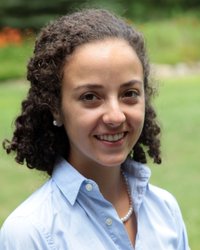
Stephanie Olbrych
Medical School: Case Western Reserve University School of Medicine, 2015
Why did you choose a BS-MD program?
I became interested in being a pediatrician when I was about 8 years old. In high school, through both school subjects and clinical shadowing, my interest in medicine was fortified, and I knew that applying to medical school was in my future. I attended a high school where academic and personal balance were prized, so I knew I wanted a similarly full opportunity in college to pursue other interests before attending medical school. I learned about the Case Western Reserve University BS-MD program — the Pre-Professional Scholar’s Program (PPSP) — during my college interview at the university. It sounded perfect — a full four years of undergraduate studies (or a year of freedom if you finished your degree early), no required courses or major, the freedom to either take the MCAT® exam and apply elsewhere, or forego the stress and stay at CWRU. At the same time, I saw my brother, then a senior in college, struggle through the traditional medical school admissions process. I knew right then that this program was what I wanted.
Do you interact only with BS-MD students, or do you take classes with other medical students?
The university PPSP is fully integrated into both undergraduate and medical school experiences. During undergrad, the PPSP students had a common advisor who coordinated optional monthly meetings featuring various panelists, including program graduates who were currently in our medical school, admission directors, and financial aid directors.
How is being a medical student different than the undergraduate program?
Being a medical student is a lot more difficult than I anticipated. I’d always heard getting into medical school was the hard part. Since I had a fairly pain-free admissions experience, I’m definitely biased. Still, no one ever said being here was hard, either. However, there’s a comforting level of camaraderie that’s present in medical school. And unlike undergrad, everything you learn and study is really interesting and directly applicable to your future.
In addition to having an early acceptance into medical school, what are the other perks of being in a BS-MD program?
During my four years prior to medical school, the security and freedom I had in the PPSP allowed me to major in Spanish, something I was interested in and thought would serve me well in my future career. The program also gave me time to take advantage of CWRU’s Integrated Graduate Studies (IGS) program where I earned my Master of Public Health with a concentration in global health, alongside my degree in Spanish. I consider myself very fortunate that I had the opportunity to take advantage of the amazing programs at CWRU, and that I was able to tailor my education to my professional interest.
What advice do you have for others who are interested in doing a combined BS-MD degree?
Fully embrace whatever degree program you’re enrolled in to make the most out of your experiences.